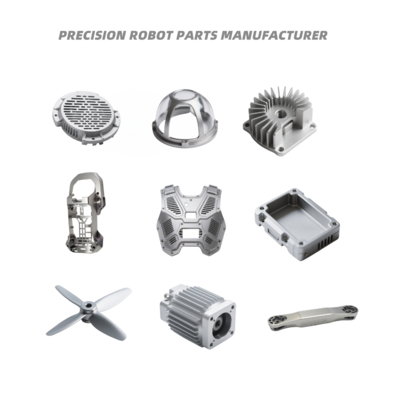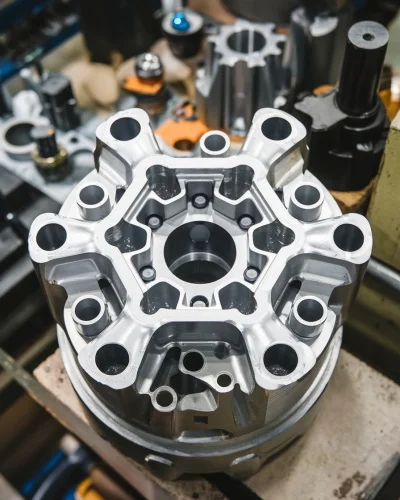The Role of Light Weight Aluminum Foundries beforehand Lightweight Manufacturing Solutions
Aluminum shops greatly add to the evolution of lightweight production solutions. Their cutting-edge spreading innovations generate high-strength, lightweight components essential for industries such as vehicle and aerospace. This advancement not only enhances item efficiency however likewise advertises sustainability through the usage of recycled products. As these foundries adapt to arising technologies and practices, they pave the way for future advancements in manufacturing efficiency and ecological responsibility. What exists ahead in this transformative trip?
The Advantages of Lightweight Materials in Production
As sectors increasingly seek effectiveness and sustainability, the fostering of lightweight materials in production has arised as a necessary technique - aluminum casting. These products, especially aluminum and composites, use various benefits that improve production procedures and item performance. Mostly, their minimized weight adds to reduce energy usage throughout transport and operation, leading to substantial expense savings
Lightweight materials help with the design of even more complex geometries, permitting for greater innovation in item advancement. This versatility often leads to enhanced capability and efficiency, satisfying the developing demands of modern-day customers.
Additionally, using lightweight products can improve the durability of products as a result of their resistance to rust and exhaustion. This toughness not only reduces maintenance expenses yet also supports sustainability efforts, as longer-lasting items add to much less waste. To sum up, the benefits of light-weight materials are essential in driving performance, technology, and ecological responsibility in production.
Advancements in Light Weight Aluminum Spreading Technologies
Recent developments in light weight aluminum spreading modern technologies are reinventing the production landscape, specifically in the manufacturing of lightweight parts. Innovations such as high-pressure die casting and vacuum pass away spreading have actually significantly enhanced the precision and surface area coating of light weight aluminum parts - Aluminum Casting Company. These techniques permit the creation of complicated geometries while reducing material waste and boosting mechanical buildings

Furthermore, the implementation of real-time monitoring systems ensures quality assurance throughout the spreading procedure, bring about more constant product results. Collectively, these innovations not just improve the efficiency of light weight aluminum parts however additionally sustain the industry's shift towards even more sustainable production methods.
Applications of Light Weight Aluminum Parts in Various Industries
While aluminum components have long been made use of in numerous markets, their flexibility and light-weight residential or commercial properties continue to drive cutting-edge applications across fields such as automotive, aerospace, and construction. In the automobile market, light weight aluminum is progressively made use of for engine blocks, wheels, and body panels, improving fuel performance and performance. Aerospace makers utilize light weight aluminum for airplane structures and elements, profiting from its strength-to-weight ratio to boost gas economic situation and haul capacity.
In the building and construction market, light weight aluminum is preferred for window frames, roofing, and structural elements, supplying resilience and resistance to rust while minimizing overall building weight. In addition, the electric and electronics industries gain from light weight aluminum's conductivity and lightweight nature, utilizing it in wiring, units, and warm sinks. These varied applications highlight the important duty of light weight aluminum parts, which not only fulfill market demands yet likewise add to improvements in product design and capability throughout multiple areas.
Sustainability and Power Effectiveness in Aluminum Foundries
The aluminum shop industry plays an essential duty in advertising sustainability and power effectiveness, particularly as demand for light-weight components remains to expand across different fields. Shops are significantly adopting environmentally friendly methods, such as utilizing recycled aluminum, which considerably lowers power intake and greenhouse gas exhausts compared to key aluminum production.
Advancements in casting technologies boost energy performance by optimizing the melting procedures and minimizing waste. Strategies like die casting and financial investment spreading enable useful link exact material use, decreasing excess and scrap.
Furthermore, several factories are buying renewable resource resources to power procedures, additionally use this link reducing their carbon impact. Carrying out power management systems allows factories to boost and keep an eye on power use, ensuring they run at peak performance.

Future Trends in Lightweight Manufacturing Solutions
Exactly how will emerging technologies form the future of lightweight manufacturing remedies? Innovations such as sophisticated products, automation, and additive manufacturing are established to redefine manufacturing processes. The assimilation of smart manufacturing innovations, including the Web of Points (IoT) and expert system (AI), will certainly enable real-time monitoring and optimization, boosting performance and lowering waste.

As sustainability remains to be a paramount issue, lightweight options will progressively concentrate on reusing and reusing products, straightening with circular economic climate concepts. This advancement in light-weight manufacturing will not just boost item performance but likewise add to environmental objectives, making sure that the market continues to be competitive in a quickly altering market landscape.
Often Asked Concerns
Exactly How Do Aluminum Foundries Guarantee High Quality Control in Manufacturing?
Aluminum foundries assure high quality control in production via rigorous screening, standardized procedures, and continual tracking - aluminum casting. They carry out skilled employees and sophisticated technologies to maintain uniformity, lower issues, and fulfill industry requirements throughout the manufacturing process
What Are the Main Tests Dealt With by Aluminum Foundries?
Aluminum foundries deal with learn the facts here now challenges such as changing resources expenses, maintaining manufacturing performance, making certain consistent top quality, adjusting to technological innovations, and meeting ecological guidelines, all of which influence their total operational effectiveness and competitiveness in the market.
Exactly How Does Light Weight Aluminum Recycling Impact Shop Workflow?
Light weight aluminum recycling significantly enhances foundry operations by decreasing resources costs, reducing power intake, and reducing ecological impact. This lasting practice makes it possible for shops to improve effectiveness while meeting enhancing need for light-weight, high-performance aluminum products.
What Abilities Are Required for Workers in Light Weight Aluminum Foundries?
Employees in light weight aluminum shops require abilities in metallurgy, machining, quality assurance, and safety practices. Effectiveness in operating equipment, recognizing alloy residential or commercial properties, and analytical are likewise crucial for reliable manufacturing and keeping high safety and security criteria.
Just How Do Aluminum Foundries Deal With Waste Monitoring?
Light weight aluminum shops take care of waste with reusing scrap metal, utilizing efficient waste segregation techniques, and adhering to environmental policies. They execute lasting practices to lessen landfill contributions, ensuring that unsafe materials are thrown away properly.
Light weight aluminum factories greatly contribute to the evolution of light-weight manufacturing options. Current developments in aluminum spreading technologies are transforming the production landscape, particularly in the manufacturing of lightweight components. While light weight aluminum parts have actually long been made use of in different industries, their convenience and lightweight properties proceed to drive cutting-edge applications across sectors such as auto, aerospace, and construction. Additionally, the electric and electronics industries benefit from light weight aluminum's conductivity and lightweight nature, utilizing it in wiring, enclosures, and warm sinks. The light weight aluminum shop market plays a crucial role in promoting sustainability and power efficiency, specifically as demand for light-weight parts proceeds to expand throughout numerous industries.